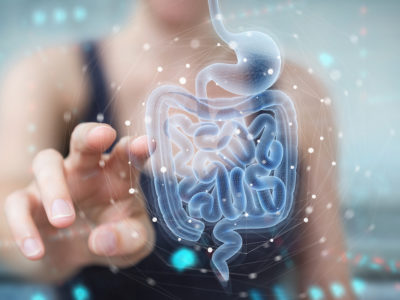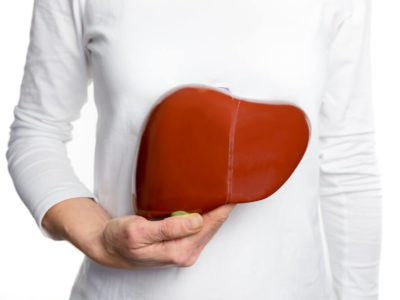Table of Contents[Hide][Show]
Heard about enzymes but don’t know exactly what they are or what they do for your body? Keep reading to learn more about these proteins and why they are a health miracle.
What Are Enzymes?
Without enzymes, plants, humans, and animals can’t exist. They are necessary for most cellular functions and biological processes, including optimal digestion and nutrient absorption. Enzymes work to carry out all of the biochemical reactions needed for all living organisms to stay alive and reproduce.
Enzymes are small proteins composed of amino acids that help speed the rate of chemical reactions in the body. The body secretes them to catalyze functions that are normally not possible at body temperature.
In fact, a professor of biochemistry and biophysics and chemistry stated that one biological reaction essential to life takes 2.3 billion years without the enzyme that catalyzes it in milliseconds!
We have identified over 3,000 different enzymes, but some believe there might actually be as many as 70,000 within our bodies. There is still much to discover. Each organ has its own set of enzymes; each with its own unique function.
Who Were the First to Use Enzymes for Non-Human Body Processes?
Enzymes have been used since the ancient Sumerians and Egyptians discovered fermentation and began brewing and producing cheese.
Gene technology and modern science have now made it possible for us to synthesize and capture enzymes in such a way that we can use them to benefit our health. Plus, they are gentle on the natural environment.
What Are the Different Types of Enzymes?

Enzymes are divided into six functional classes. This nomenclature is based on the type of reaction used for catalysis.
Too technical? Jump ahead to read a more general breakdown of the three categories of enzymes and what each does.
These six classes are:
- Hydrolases: are hydrolytic enzymes, which catalyze the hydrolysis reaction by adding water to cleave the bond and hydrolyze it.
- Lyases: add water, carbon dioxide or ammonia across double bonds or eliminate these to create double bonds.
- Ligases: are able to charge the catalysis of a ligation process.
- Oxidoreductases: catalyze the oxidation reaction where electrons travel from one form of a molecule to another.
- Transferases: help with transportation of the functional group among acceptors and donor molecules.
- Isomerases: catalyze the structural shifts present in a molecule which causes the molecule to change its shape.
To break this down even further and put it in everyday terms, enzymes fall into three main categories:
- Food enzymes
- Systemic enzymes
- Digestive enzymes
1. Food Enzymes
Food enzymes are present in raw food and help with joint health, arterial health, and immune system function. Eat more fruits and vegetables to automatically receive more food enzymes.
Humans used to get a lot more enzymes from their diet. Thanks to processing, shipping, refrigeration, and cooking, we often don’t receive enough enzymes to re-supply the digestive tract effectively.
The foods that contain the most enzymes are pineapples, papayas, avocados, bee pollen, milk kefir and yogurt, and fermented vegetables (such as kimchi).
2. Digestive Enzymes
Digestive enzymes aid in the digestive process. These enzymes are vital to the digestive system’s function. There are eight primary digestive enzymes that help break down different food groups:
- Protease for digesting protein
- Lipase for digesting fatty acids
- Amylase for digesting carbs
- Cellulase for breaking down fiber
- Maltase for converting complex sugars into glucose
- Lactase for digesting lactose sugar in dairy products
- Sucrase for digesting a range of sugars
- Phytase for boosting overall digestion and producing B vitamins
We need all of these enzymes to break down the food we eat. In fact, our health greatly suffers due to malnutrition if our bodies can’t produce them in adequate amounts.
Related
Digestive Enzymes vs. Probiotics… What’s The Diff?
Probiotics and enzymes are being talked about non-stop in the health community and this might be a silly question, but… what’s the diff? See significant improvements on your health when you feed your body with the best probiotic and enzymes.
When Do You Need to Boost Your Digestive Enzymes?
A digestive enzyme also helps combat indigestion, bloating, abdominal discomfort, gas, and other problems. When these problems occur, you may be prescribed medications and antacids. However, the source of the problem may actually lie in enzyme insufficiency.
To address these digestive issues, a simple solution is to eat foods that naturally have digestive enzymes, such as mangoes, honey, bananas, and sauerkraut.
3. Systemic Enzymes
Systemic enzymes or systemic proteolytic enzymes help build and maintain overall health. They can help break down excess mucus, fibrin (scar tissue), toxins, allergens, and clotting factors. Some people use them as alternatives to NSAIDs or non-steroidal anti-inflammatory drugs, thanks to their anti-inflammatory effects.
Proteolytic systemic enzymes digest proteins and include the pancreatic proteases trypsin and chymotrypsin, papain, bromelain (found in pineapple), Serratia peptidase (or the silkworm enzyme) and fungal proteases.
Systemic enzymes have been shown to be useful in healing autoimmune conditions. They are believed to aid the body in breaking down immune complexes formed between antibodies created by the immune system and the compounds they bind to (antigens).
Seaprose-S or protease-s is a proteolytic enzyme that has been shown to have powerful positive health benefits such as lowering inflammation and dissolving mucus. It is designed to be consumed between meals when it can best work in your entire bodily system.
Nattokinase is another proteolytic enzyme extracted and purified from a traditional Japanese food named natto. Natto is made from boiled or steamed soybeans fermented with beneficial bacteria, but nattokinase doesn’t contain soy. It has been shown to have a positive effect on blood pressure, heart health, and even longevity.
Why Are Enzymes Important?
Enzymes are important because they have been found to help with:
- Lactose intolerance, celiac disease, and other gastrointestinal conditions
- Cardiovascular diseases, like hypertension, stroke, and heart attacks
- Cancer
- Inflammatory venous disease
- Surgical wounds, post-partum
- Any illness that stems from a weakened immune system
They also help fight infections and heal general wounds. This is unsurprising as enzymes play a key role in the synthesis of antibiotics. Other health benefits of enzymes include hormone regulation, slowing the aging process, dissolving blood clots, and reducing inflammation.
Enzymes may also:
- Help eliminate plaque from teeth
- Reduce the risk of and response to food and pollen allergies
- Aid in cleansing and detoxification
- Improve body alkalinity
- Reduce the risk of osteoporosis, Alzheimer’s, fibromyalgia, and chronic fatigue syndrome
Do Enzymes Supercharge Exercise?

Recently, it has been discovered that enzymes are beneficial for people who are involved in fitness, weight loss programs, bodybuilding and weightlifting, and other sports and activities.
MassZymes, for example, creates enzyme products that have a range of benefits such as:
- Muscle growth
- Faster recovery after exercise
- Improved gastrointestinal wellness, including reduced bloating, gas, and constipation
- Better absorption of the protein you’re already consuming
- Pre-workout free energy levels
- Immune enhancement
- Increased mental clarity and focus
What Are Other Facts You Should Know About Enzymes?
Other things you must know about these bodily proteins are as follows:
- Enzymes are used in the fabric industry to produce stone-washed jeans and other effects and are added to clothes detergents and bread to make it last longer, rise before baking, and get crispy in the oven.
- Cancer cells are protected by proteins, which can be broken down by enzymes.
- Enzymes can kill all types of invaders, from bacteria and viruses to molds and fungi, without touching delicate blood proteins.
- Enzymes can be lost through our sweat and body waste and decline during the natural aging process.
Enzymes indeed play an important role in bodily functions and provide many health benefits. All you need to do is eat foods rich in these natural proteins to accelerate their supply in the body for increased enzyme activity.
In fact, the benefits of taking enzymes are so many, you might have started to wonder why you’ve not been taking them all along!
You May Also Like…
Editor’s Note: This post was originally published on April 27, 2017, and has been updated for quality and relevancy most recently on September 21, 2021.





